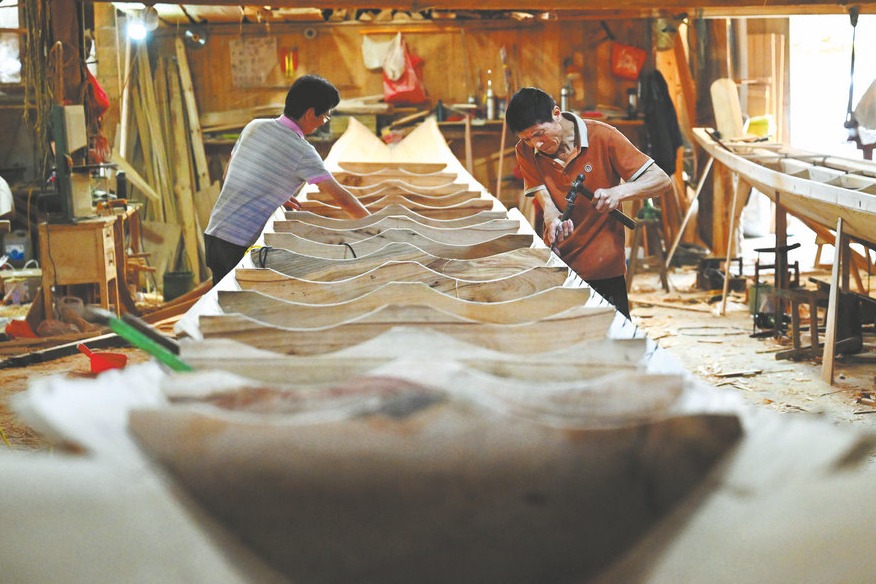Rural bookstore shares story of Tibetan culture


Shangri-La builds facilities to attract those seeking romance and adventure, Yang Yang reports.
About seven years ago, 33-year-old Tsering Dondrub, a business owner in Shangri-La county, Diqing Tibetan autonomous prefecture in Southwest China's Yunnan province, purchased three traditional Tibetan houses in Wugong village, Xiaozhongdian town of the county, a half-hour drive from downtown area.
The three freestanding houses built nearly half a century ago had been unused for five years and would maintain this status for another three years until a bookstore brand moved in for its new branch.
Shangri-La was a key staging post in the Yunnan-Xizang branch of the Ancient Tea-Horse Caravan Route, a trade route that started in the Tang Dynasty (618-907) and prospered in the Ming and Qing dynasties (1368-1911) connecting Pu'er in Yunnan with Lhasa in today's Xizang autonomous region.
It continues to be an important point along the north-south National Highway 214, which starts from Qinghai province, runs through Xizang and Yunnan's Shangri-La, Lijiang and Dali, and ends in Pu'er. There are 26 ethnic groups in Shangri-La and about 33 percent of the population are of the Tibetan ethnic group.
Wugong sits just beside the highway. Villagers used to live by growing highland barley and raising yaks and sheep. About 20 years ago, there were 67 people and 10 households, which has expanded to 139 people and 31 households.
Born into a family of blacksmiths, Tsering Dondrub and his father kept refining their skills in making machetes and tableware in their spare time.
With the national highway, a high-speed railway and an airport, Shangri-La, the mysterious region described in the novel Lost Horizon by James Hilton published in 1933, has become easier to access in recent years.
Tourism has boomed, bringing visitors from home and abroad to the outlying village, who have showed a strong interest in traditional Tibetan culture.
Having been often invited to craft Tibetan knives and containers by tourists, Tsering Dondrub and his father opened a workshop beside the highway, which soon became lucrative.
Since 2009, under the trademark Kasa Dao (Kasa Knife), Tsering Dondrub has been running the business of making and selling traditional Tibetan products both online and in shops. By 2021, with integrated businesses, including rural tourism, iron products and ethnic cultural products, he has seen revenues exceed 7 million yuan ($985,125).





































